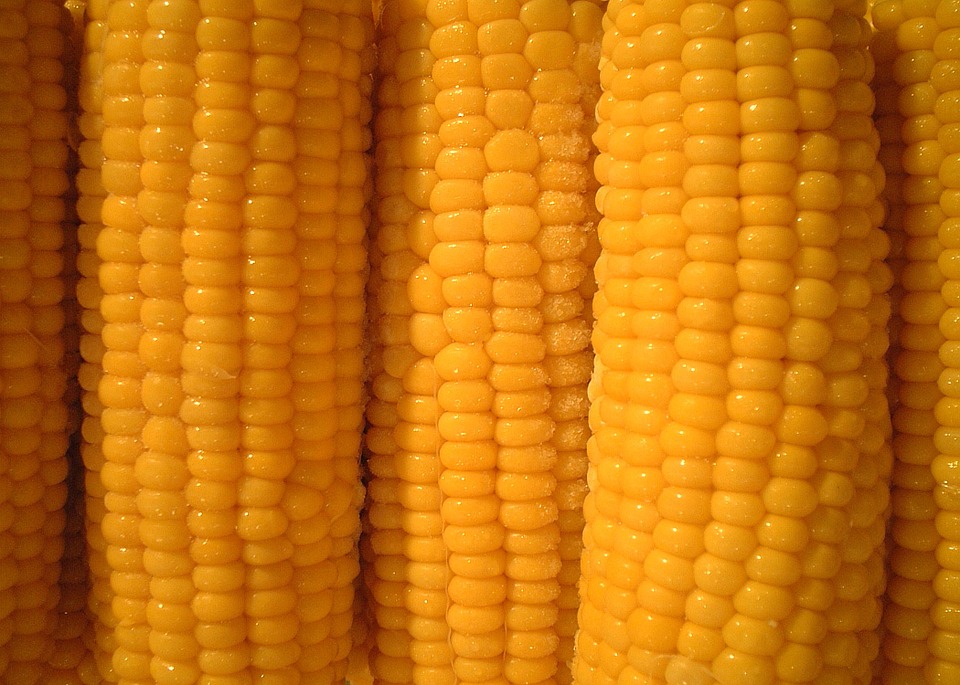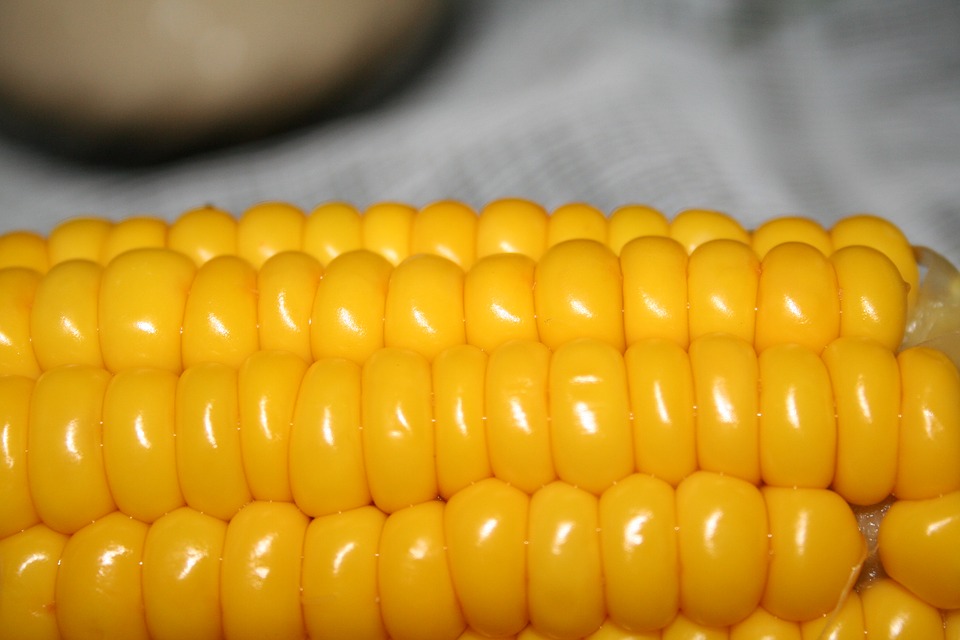This comprehensive guide explores the question of whether rabbits can safely consume corn husks, offering a detailed analysis of their nutritional content, potential risks, and safe alternatives. We'll delve into the specifics of rabbit digestion, the delicate balance of their diet, and the potential consequences of introducing unusual foods like corn husks. By understanding these factors, you can make informed decisions about your rabbit's diet and ensure their health and well-being.
Part 1: Understanding Rabbit Nutrition

1.1. The Rabbit Digestive System: A Delicate Balance
Rabbits possess a unique digestive system, specifically designed to process high-fibre diets. Their large caecum, a pouch in the gut, houses a diverse population of bacteria that break down fibre into usable nutrients. This process, known as hindgut fermentation, is crucial for their health.
1.2. The Importance of Fibre: A Key to Healthy Digestion
Fibre is the backbone of a rabbit's diet. Hay, especially Timothy hay, provides the necessary roughage that stimulates gut motility, promoting regular bowel movements and preventing digestive problems like constipation and stasis.
1.3. Essential Vitamins and Minerals: Fuel for Growth and Health
A balanced rabbit diet should include a variety of fresh vegetables that provide essential vitamins and minerals. Leafy greens like kale, spinach, and romaine lettuce offer a rich source of vitamins A, C, and K, while other vegetables, like carrots and bell peppers, contribute important minerals like calcium, magnesium, and potassium.
1.4. The Role of Pellets: A Supplemental Option
While hay and fresh vegetables should form the core of a rabbit's diet, commercially formulated rabbit pellets can be used as a supplemental food source. These pellets should be of high quality, low in sugar, and specifically designed for rabbits.
Part 2: Corn Husks: A Closer Look

2.1. Nutritional Composition: Fibre, Sugar, and More
Corn husks, the outer coverings of corn cobs, primarily consist of cellulose, a type of fibre. They also contain small amounts of other nutrients, including:
- Vitamins: A, C, and E
- Minerals: Calcium, magnesium, and phosphorus
- Antioxidants: These can help protect cells from damage
- Sugars: Corn husks contain a higher sugar content than hay or leafy greens, which can be detrimental to a rabbit's health.
2.2. Potential Risks: A Deeper Dive
While corn husks offer some nutritional value, they also pose several potential risks to rabbits, including:
- Digestive Issues: The high fibre content of corn husks can overwhelm a rabbit's digestive system, potentially causing bloating, gas, diarrhoea, or constipation.
- High Sugar Content: The sugar content in corn husks can contribute to weight gain and dental problems in rabbits.
- Pesticide Residues: Corn husks may contain pesticide residues from the growing process, which can be harmful to rabbits. Organic corn husks are recommended if you choose to offer them at all.
- Choking Hazard: The fibrous nature of corn husks can pose a choking hazard for rabbits, especially if they are not chewed properly.
- Dental Issues: The fibrous texture of corn husks can potentially contribute to wear and tear on rabbit teeth, which can lead to dental problems over time.
Part 3: A Look at the Research
3.1. Scientific Studies and Expert Opinions
While there is limited research specifically on rabbits and corn husks, the consensus among veterinary experts is that corn husks are not an ideal food for rabbits. The potential risks outweigh any potential benefits.
3.2. Veterinarian Recommendations
Veterinarians generally advise against feeding corn husks to rabbits due to their high sugar content, potential for digestive upset, and the risk of choking. They recommend focusing on a balanced diet of hay, fresh vegetables, and high-quality rabbit pellets.
Part 4: Introducing Corn Husks: Proceed with Caution
4.1. The "If at All" Rule
If you are considering introducing corn husks to your rabbit's diet, it's crucial to proceed with extreme caution and only offer them in very limited quantities.
4.2. Choosing Safe Corn Husks
If you do decide to offer corn husks, select organic, pesticide-free options.
4.3. Thorough Cleaning and Preparation
Thoroughly wash and dry the corn husks before offering them to your rabbit. Remove any potentially harmful elements like corn silks.
4.4. Small Quantities and Close Monitoring
Introduce corn husks in tiny amounts, no more than a small piece at a time. Observe your rabbit closely for any signs of digestive upset, such as diarrhoea, bloating, or lethargy.
4.5. Individual Sensitivity
Each rabbit is unique. Some rabbits may tolerate small amounts of corn husks with no adverse effects, while others may exhibit digestive issues. Pay close attention to your rabbit's individual needs and adjust their diet accordingly.
Part 5: Safe Alternatives to Corn Husks
5.1. Timothy Hay: The Foundation of a Healthy Diet
Timothy hay should constitute the majority of a rabbit's diet. It's rich in fibre and low in calories, providing essential roughage for healthy digestion and dental wear.
5.2. Fresh Vegetables: A Rainbow of Nutrients
Fresh vegetables, like leafy greens (kale, spinach, romaine lettuce), bell peppers, and carrots, are excellent sources of vitamins, minerals, and antioxidants.
5.3. Choosing Safe Vegetables: A Guide
When selecting vegetables for your rabbit, choose options that are safe and appropriate for their digestion. Avoid vegetables high in oxalates, such as spinach and rhubarb, which can interfere with calcium absorption.
5.4. Commercial Rabbit Pellets: A Supplemental Option
High-quality rabbit pellets can be used as a supplemental food source, providing additional nutrients and serving as a source of fibre. Look for pellets specifically formulated for rabbits and choose those that are low in sugar and high in fibre.
Part 6: Recognising Signs of Digestive Upset
6.1. Early Detection is Key
Early recognition of digestive upset in rabbits is crucial, as it can quickly escalate into serious health problems.
6.2. Signs to Watch For
Signs of digestive upset in rabbits may include:
- Loss of appetite
- Diarrhoea or constipation
- Bloating or abdominal pain
- Reduced activity levels
- Changes in stool consistency or frequency
6.3. Seeking Veterinary Advice
If you notice any of these signs in your rabbit, especially after consuming corn husks, seek immediate veterinary advice.
Part 7: FAQs
7.1. Can Rabbits Eat Corn Husks?
While technically rabbits can consume corn husks, it is not recommended due to their high sugar content, potential for digestive upset, and the risk of choking.
7.2. What are Safe Treats for Rabbits?
Safe treats for rabbits include small amounts of fresh vegetables like leafy greens, bell peppers, and carrots, and occasional small portions of dried herbs like parsley and cilantro.
7.3. Are Corn Husks Safe for All Rabbits?
Corn husks are generally not safe for rabbits, regardless of their breed or age. Their digestive system is sensitive, and they are prone to digestive upset from high-fibre foods like corn husks.
7.4. Can I Feed My Rabbit Corn Husks as a Bedding Material?
While corn husks can be used as bedding, it's essential to avoid using them as a food source for your rabbit. Ensure that they are out of reach and inaccessible to your rabbit.
7.5. What are the Signs of a Choking Rabbit?
Signs of a choking rabbit include gagging, coughing, and difficulty breathing. If you suspect your rabbit is choking, seek immediate veterinary attention.
7.6. How Can I Prevent Digestive Upsets in My Rabbit?
The best way to prevent digestive upsets in your rabbit is to feed them a balanced diet consisting primarily of hay, fresh vegetables, and a small amount of high-quality rabbit pellets. Avoid introducing new foods suddenly and observe your rabbit for any signs of digestive upset.
Remember, a healthy rabbit is a happy rabbit. By understanding the intricacies of their diet and choosing safe food options, you can ensure your furry companion enjoys a long and fulfilling life.
Everyone is watching
-

Do Rabbits Lay Eggs? (The Surprising Truth)
OTHER TYPES OF PETSThis article will unravel the common misconception that rabbits lay eggs, exploring the fascinating world of r...
-

Can Rabbits Eat Grapes? A Guide to Safe Rabbit Treats
OTHER TYPES OF PETSThis comprehensive guide will explore the safety and suitability of grapes for rabbits, providing detailed inf...
-

What's a Group of Rabbits Called? (A Comprehensive Guide)
OTHER TYPES OF PETSThis article delves into the fascinating world of rabbits, exploring the various terms used to describe a grou...
-

Predators That Hunt Rabbits: A Guide to Natural Enemies
OTHER TYPES OF PETSI've always been fascinated by the circle of life, that delicate dance between predator and prey. Growing up ...
-

Are Rabbits Nocturnal Animals?
OTHER TYPES OF PETSThe question of whether rabbits are nocturnal animals is a fascinating one, with a surprisingly complex answer...
